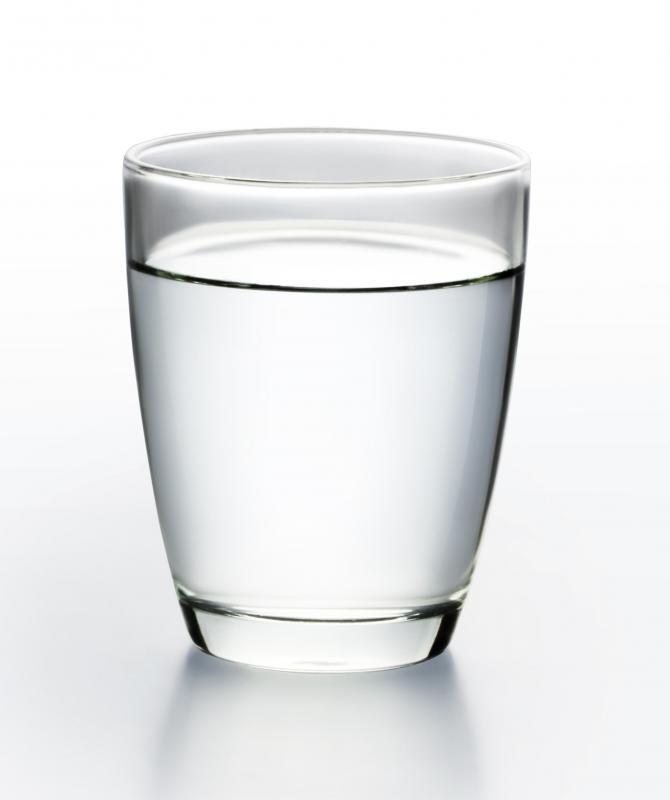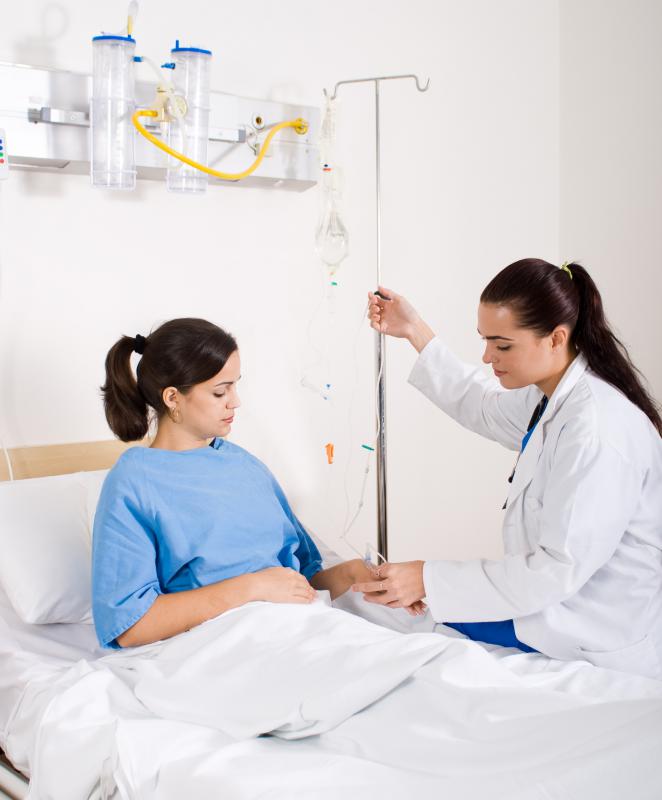At WiseGEEK, we're committed to delivering accurate, trustworthy information. Our expert-authored content is rigorously fact-checked and sourced from credible authorities. Discover how we uphold the highest standards in providing you with reliable knowledge.
What are Causes of Dehydration?
Dehydration refers to a medical condition in which a person does not have enough fluids and vital minerals in his or her body. In most cases, people with dehydration experience mild symptoms such as thirst and headaches, but extreme dehydration can result in exhaustion, lowered blood pressure, other severe medical problems, or even death. There are numerous causes of dehydration, including excessive sweating, vomiting, fever, burns, and alcohol intake.
One of the most common causes of dehydration is excessive sweating caused by extreme heat, overexertion, or an innate biological condition. Dehydration occurs when people sweat out more fluid than they take in. People who are most susceptible are those who work or exercise outside in hot weather without drinking enough fluids or taking regular breaks to escape the heat. Some individuals naturally sweat more than the average person, and must take extra care to remain properly hydrated.

Diarrhea, fever, and vomiting are major causes of dehydration in people suffering from a sickness. Essential fluids and minerals are expelled in excess when a person experiences frequent diarrhea and vomiting. Fevers often cause people to sweat more than usual, resulting in more fluid deficiency. Many sick people have difficulty drinking large amounts of water or other fluids, which delays the process of hydrating the body after excessive fluid loss.

Burn victims are at risk of dehydration if their injuries are not immediately treated. The body releases large amounts of fluids from large, open burns as a natural means of protecting and healing the wounds. However, the fluids that leave the body result in a mineral deficiency that can manifest as headaches, nausea, and exhaustion.
Drinking alcohol is one of the most frequent causes of dehydration in adults. Large amounts of alcohol in the bloodstream deplete the human body of essential nutrients, such as potassium, which can result in dehydration. Alcohol intake can also cause a person to urinate more frequently than is normal, further depleting the body of necessary minerals and fluids.

When people cannot prevent the causes of dehydration, they can usually overcome the condition by drinking water and other fluids that contain minerals and electrolytes, such as sports drinks Eating moisture-rich fruits can also be helpful in relieving symptoms. In a severe case of dehydration, an individual may need to be given an intravenous solution to restore bodily fluids and minerals. Treatments for dehydration are generally very effective, and people usually start feeling better almost immediately.
AS FEATURED ON:
AS FEATURED ON:



















Discussion Comments
@christym: On the other end of the spectrum, dehydration can also cause low blood pressure. Dehydration can cause your blood vessels to have poor tone and become weak. When that happens, the blood vessels are not properly filled and can result in low blood pressure.
@christym: Yes, dehydration and blood pressure are linked. Dehydration can specifically lead to blood pressure problems.
This is why: Our arteries, blood vessels and veins have to remain filled with blood. When water is drawn from the blood and directed to our vital organs, our blood volume becomes diminished. Our bodies compensate. To allow the blood vessels to stay full, they must contract.
The blood vessels contracting are a defensive move made by our body. However, when the body gains in one area, it is losing in another. That contraction causes increased tension in the vessels; leading to high blood pressure.
Can dehydration and blood pressure be related?
Post your comments